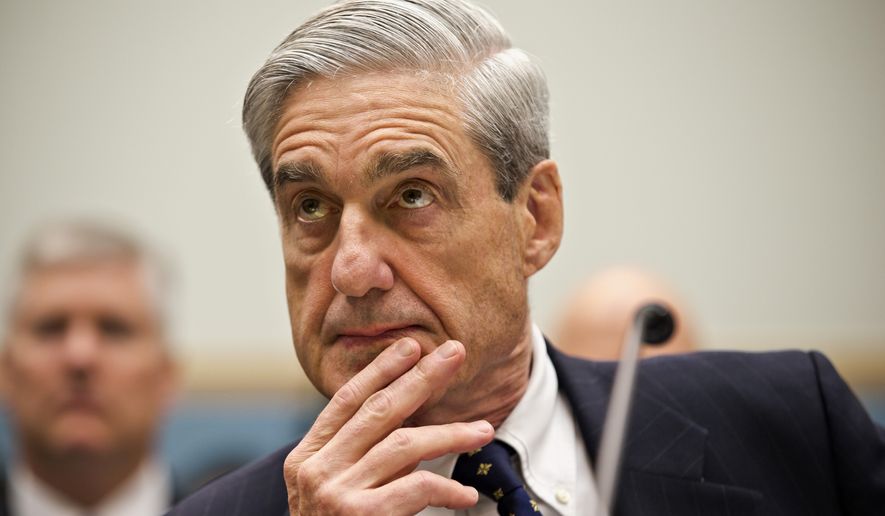Special counsel Robert Mueller on Thursday proposed using a 20-page questionnaire to whittle down the jury pool in the government’s case against Paul Manafort, President Trump’s former election campaign chairman.
“Both the Special Counsel’s investigation and this case in particular have received significant public attention,” Mr. Mueller wrote in a motion filed in federal court in Alexandria, Virginia. “Potential jurors may have biases or pre-formed opinions as a result of exposure of the widespread media attention. In light of these circumstances, the government submits that a jury questionnaire in addition to standard voir dire procedures will assist the Court in assuring that this case is tried before an impartial jury.”
The motion was accompanied by a proposed survey containing over 50 questions that Mr. Mueller, a former FBI director leading the government’s investigation into the 2016 U.S. presidential election, wants potential jury members to answer as part of the selection process to help identify any “impermissible bias and partiality” caused by the media attention surrounding both the Manafort case and special counsel’s probe in general.
“The nature and scope of the publicity surrounding this matter raises a substantial danger that potential jurors may already have formed opinions about the defendant’s guilt or innocence, may have developed views about the Special Counsel’s investigation or may otherwise be affected in their ability to consider the case impartially,” Mr. Mueller wrote.
“Written questionnaires assist both the parties and the court … both in exposing bias and in serving the interests of judicial efficiency and economy,” Mr. Mueller added.
Attorneys for Mr. Manafort did not immediately return messages seeking comment.
Mr. Manafort, 69, worked on Mr. Trump’s presidential election campaign for five months, including three as campaign chairman, prior to resigning in August 2016 days after The New York Times reported that he was under investigation over his business ties to ousted Ukrainian president Viktor Yanukovych.
He was subsequently indicted by Mr. Mueller’s office last year and currently faces charges ranging from money laundering and failing to register as a foreign agent, to making false statements to the FBI, conspiracy against the U.S. and tax and bank fraud. He pleaded not guilty and is currently in jail pending trial.
The proposed questions submitted by the special counsel’s office varies in subject matter, running the gamut from each potential juror’s educational and job histories, to more nuances questions related to both the Manafort case and the special counsel’s broader probe.
“The Manafort investigation resulting in the above charges has been the subject of extensive media coverage,” Mr. Mueller wrote. “[T]he amount of publicity about this case is only likely to grow as the trial date approaches, and such publicity increases the possibility that jurors will form biases or pre-formed opinions that may prejudice one or both parties.
“In addition to the media attention to these criminal cases, there has been extensive publicity relating to the Special Counsel’s investigation generally,” Mr. Mueller added. “Some of the media accounts question the legitimacy of the Special Counsel’s investigation, tending to advance the opinion that the investigation is ’tainted’ and therefore its results are suspect. Other media accounts, by contrast, include disparaging descriptions of the defendant.”
A total of 20 people have been charged so far as a result of the special counsel’s probe, including Mr. Manafort and at least three other members of Mr. Trump’s 2016 election campaign.
“Paul Manafort worked for me for a very short period of time,” Mr. Trump said Friday. “He worked for me, what, for 49 days or something? A very short period of time.”
Mr. Manafort had “nothing to do with our campaign,” Mr. Trump insisted.
• Andrew Blake can be reached at ablake@washingtontimes.com.




Please read our comment policy before commenting.